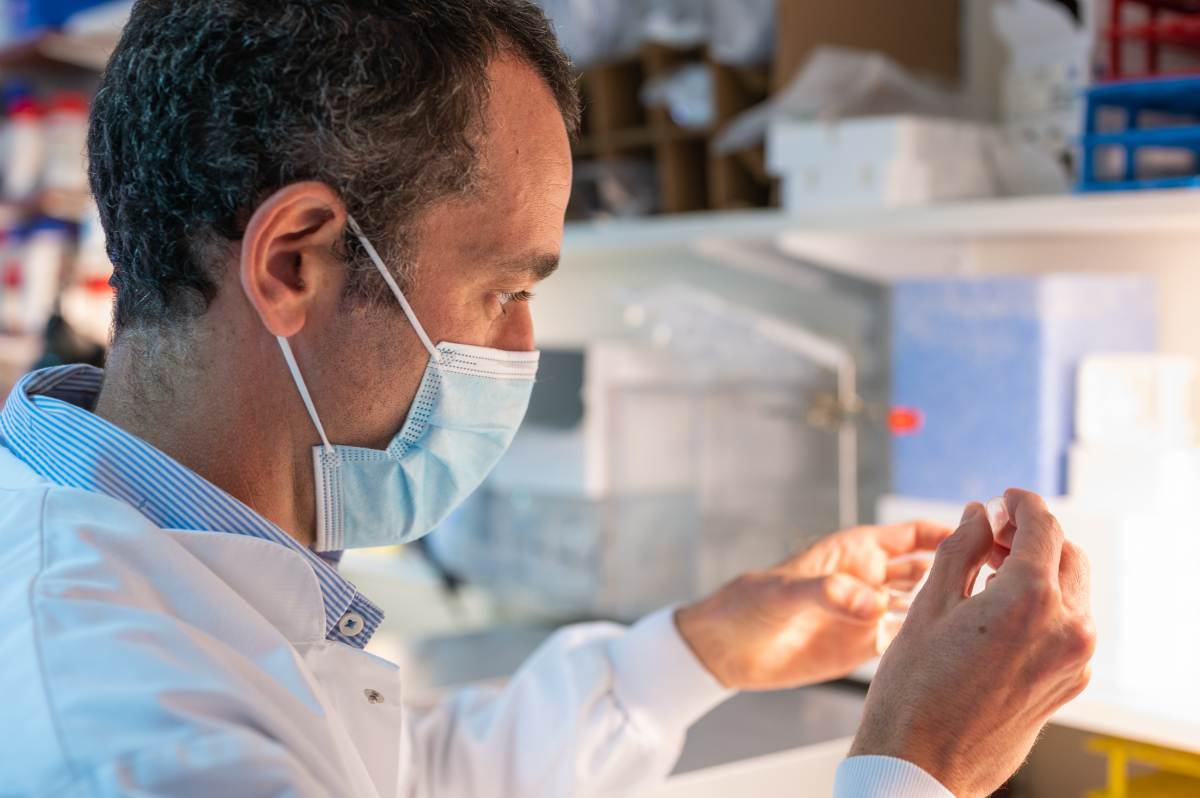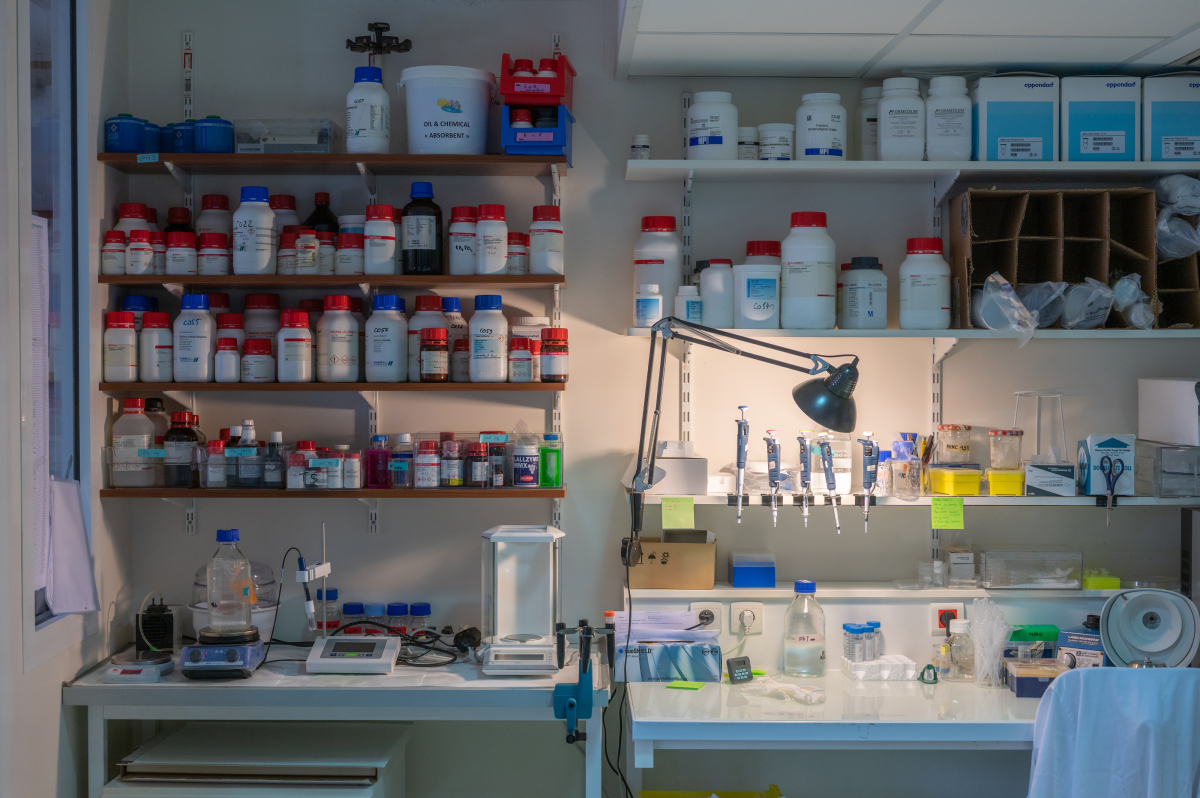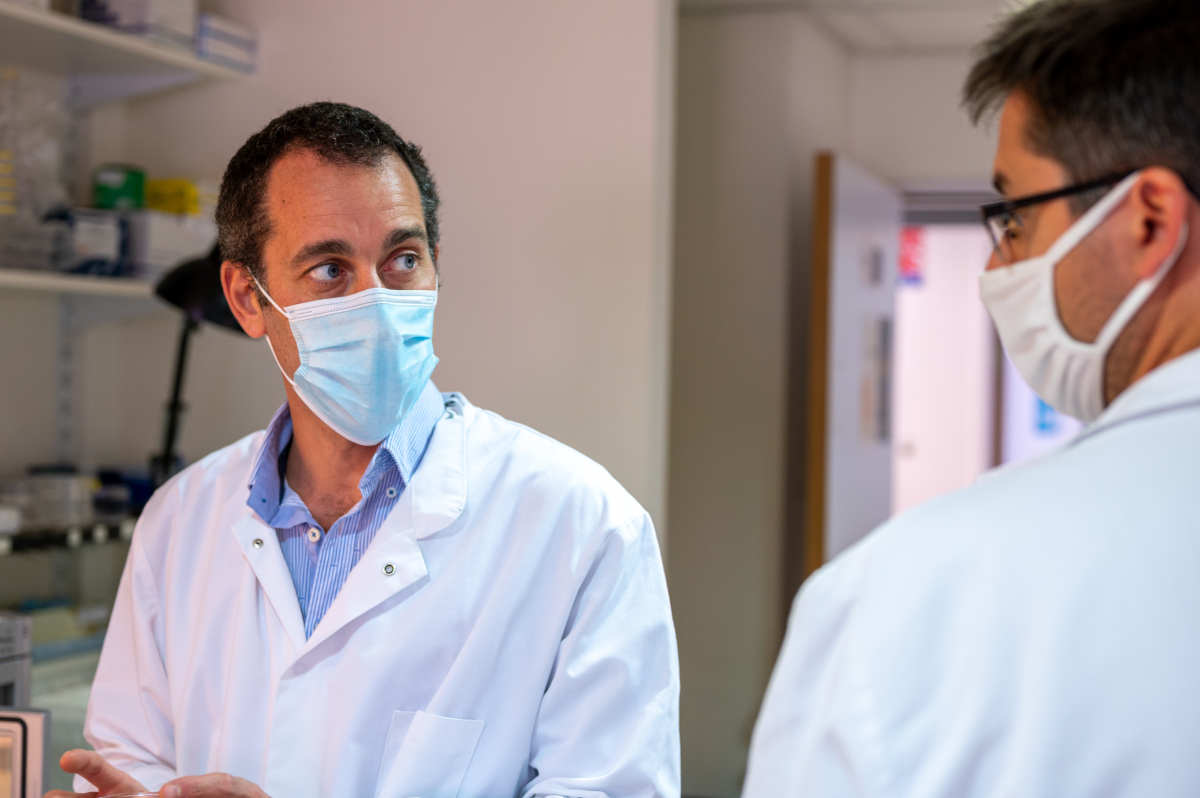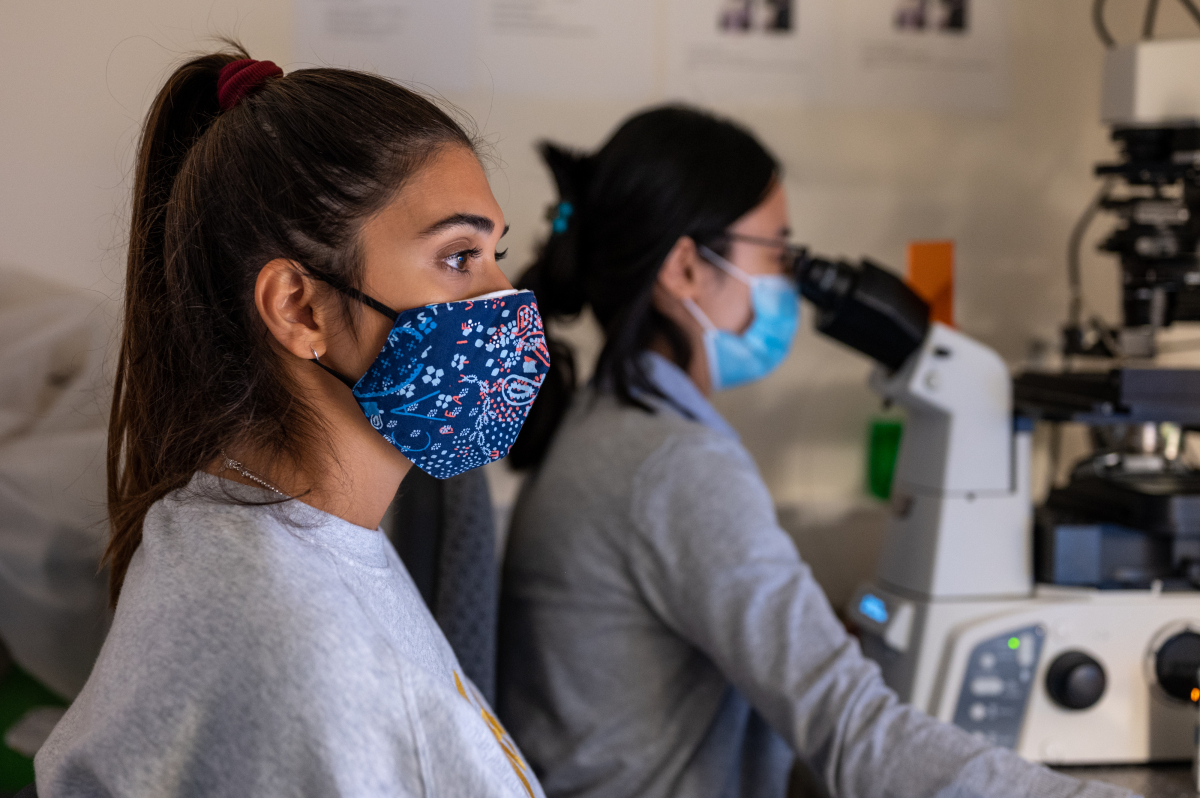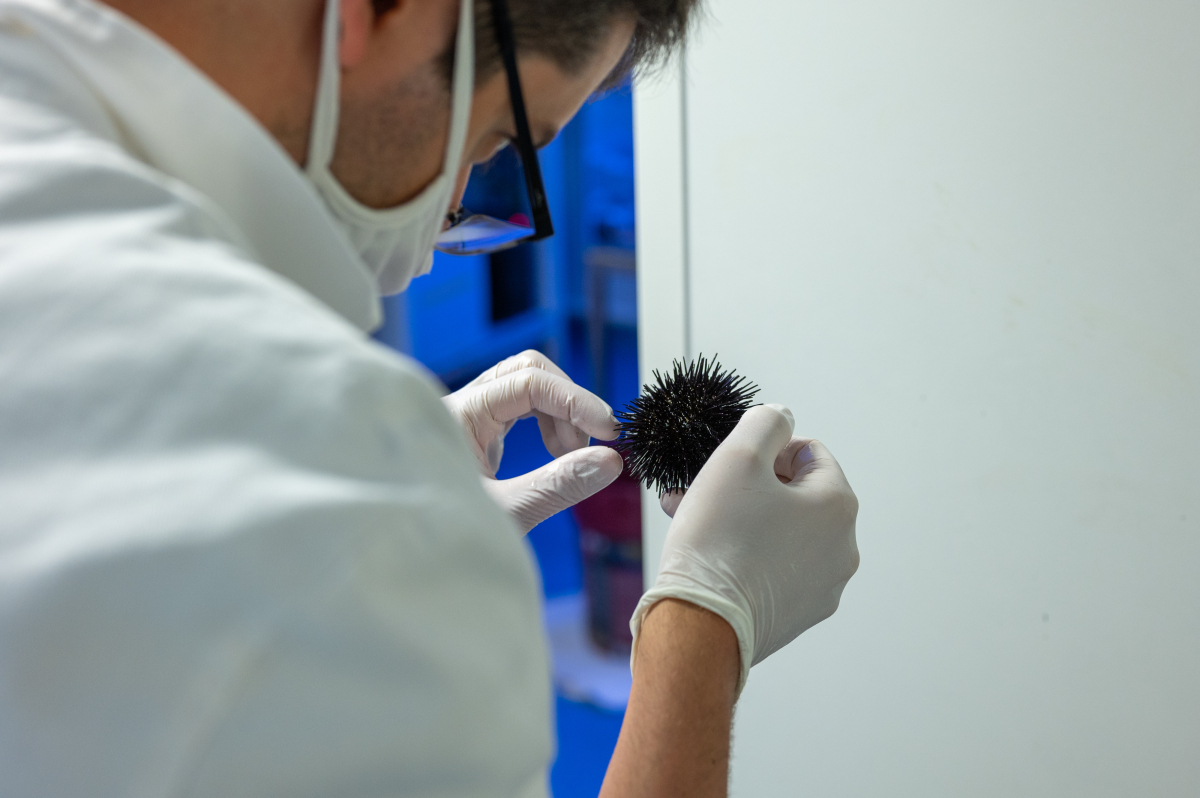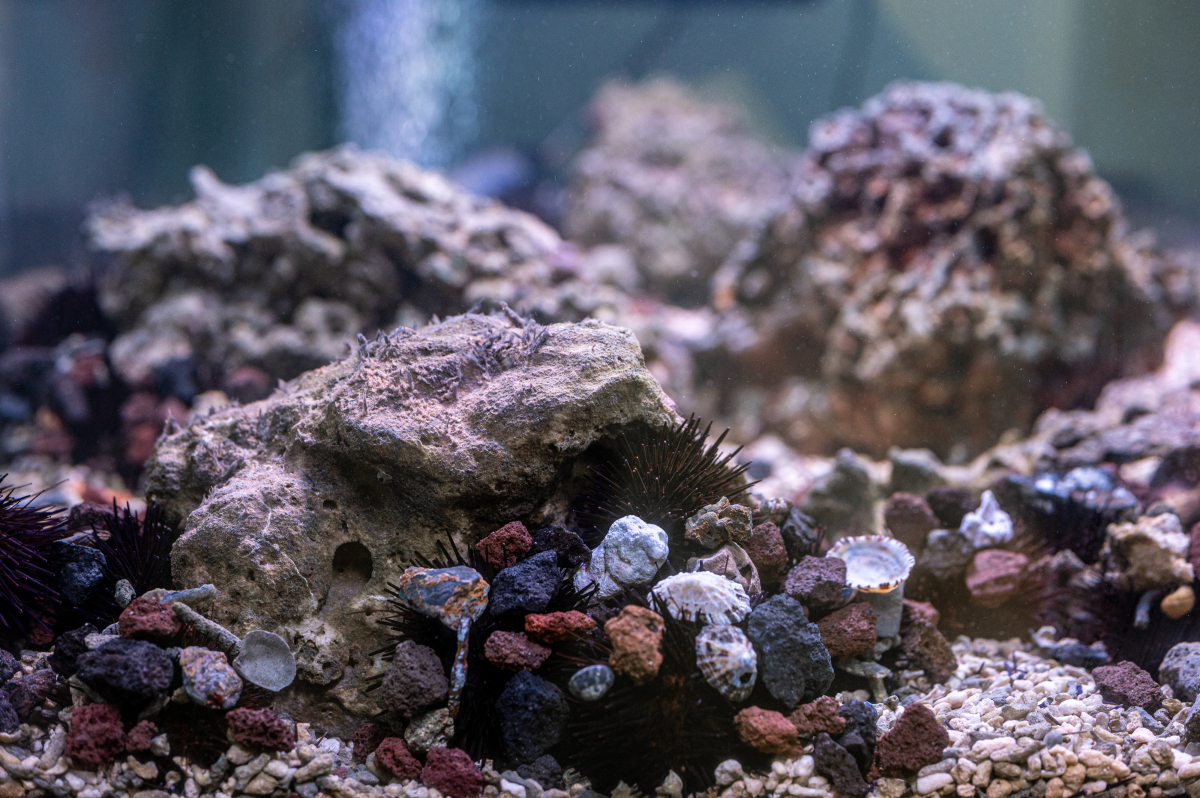Nicolas Minc Studying the spatial organization of the cell during sea urchin embryogenesis
Nicolas Minc, CNRS Research Director, head of the "Spatial Organization of the Cell" team at the Jacques Monod Institute in Paris
- 2020 • Bettencourt Prize Coups d'Élan pour la recherche française
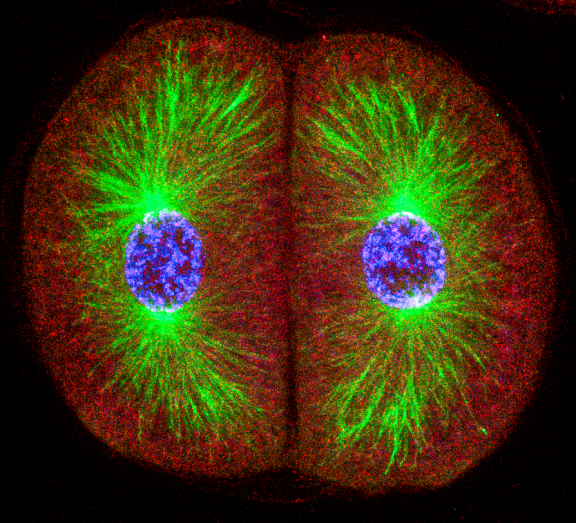


The 2020 Bettencourt Prize to Boost French Research was awarded to biochemistry researcher Yves Gaudin for his work on the rabies virus.
The mysteries of embryogenesis
Egg fertilization is the starting point of all animal life. This single cell then divides to form an embryo composed of thousands of cells, from which organs and tissues will emerge. The first divisions are anything but random: they follow a specific three-dimensional choreography called cleavage pattern.Nicolas Minc and his team aim to understand the basic mechanisms involved in the dividing cells’ spatial organization. They study embryogenesis, i.e. the way in an embryo’s cells divide, a process common to all animals, from invertebrates to human beings, allowing them to define their forms, polarity and cellular destiny.
An original, path-breaking approach
Dr. Minc uses cutting-edge imaging, mechanical-biological and modeling methods, taking the sea urchin embryo as a model. The team studies cell division after the fertilization of sea urchin eggs, which produces enormous quantities of gametes. Analyzing them leads to strong quantitative findings. To understand how eggs are organized, they study the way microtubules allow the force axis to be aligned along the geometric axis. To achieve this, Dr. Minc injects magnetic beads, which are like nanomagnets, into the cell, allowing him to measure the forces the microtubules exert to move, position and orient the cell nucleus or the division mechanisms in the egg or cells.
The inventiveness of his approach to predict cell behavior lies in combining tools and concepts from physics, biology and applied mathematics. The team's work contributes to research on cancer, which results from a deregulation of cell division or shape.
The foundation’s support
The Bettencourt Prize to Boost French Research will allow Dr. Minc to acquire a two-photon confocal microscope that will enhance the Jacques Monod Institute’s imaging platform. The new device will enable Dr. Minc's team to tackle one of biology’s most basic but unsolved problems: the mechanisms of early embryonic cleavage and cell specification.
"Everything in the life sciences is regulated in time and space according to a very sophisticated model." Nicolas Minc
Nicolas Minc in a few words
Nicolas Minc is a physicist and biologist specializing in morphogenesis. His training in both fields gives him a unique perspective on basic biological problems involving polarity and cell division. He did his thesis on micro-fluidics and, as a post-doc, honed his expertise in two specific areas: electrochemical phenomena relating to the polarity of yeast cells and the mechanics of the cell wall.
Since joining the CNRS in 2010, he has investigated how the shape of cells can impact the organization of the cytoskeleton and cell division. His work on sea urchins allowed him to develop a physical model based on Hertwig's law, which establishes certain geometric principles of cell division with a predictive factor.
Since joining the Jacques Monod Institute in 2013, he has explored other aspects of polarity, such as spore germination. His research spans a wide range of aspects of understanding life. He is developing precise force measurements to understand how organelles find their place in the cell while using quantitative imaging, genetics and physical modeling. He also uses digital simulations to understand early embryo development.
Bettencourt Prize Coups d'Élan pour la recherche française
The Bettencourt Prize Coups d'Élan pour la recherche française was created by the Foundation in 2000. It has rewarded 78 French laboratories and more than 900 researchers have benefited from this prize. Until 2021, this prize was awarded each year to four research teams, from Inserm and the CNRS Institute of Biological Sciences. The amount of the prize endowment was 250,000 euros per laboratory.
All the award-winners